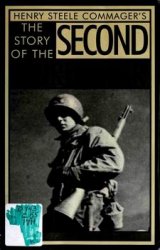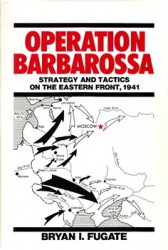By 1997, Jean Chretien was confident of a new mandate. His government was close to its goal of a balanced budget. Angry lobbies denounced his policies on gun control, gay rights, and abortion, but most Canadians approved the government’s cautious reforms. Some Atlantic provinces had integrated their sales taxes with the GST. The Prime Minister and his party had kept a safe lead in opinion polls. Only Reform had the same leader as in 1993, but a stylish makeover was not enough to make Preston Manning popular with moderate voters. Even sympathizers were troubled by the authoritarianism inherent in populist leadership. The Bloc’s leadership had passed to Michel Gauthier and then to Gilles Duceppe, an ex-Communist union organizer and son of a great Quebec actor, but the sovereignty cause had lost steam since the 1995 referendum. Could Jean Charest revive Conservative support? The ndp’s Audrey McLaughlin was replaced by another ex-social worker, Alexa McDonough, the former provincial leader in Nova Scotia. She found her party deeply unpopular in Ontario and British Columbia, but, for once, attractive to the Maritimes.
In Ontario, ndp idealism and inexperience had quickly eroded Bob Rae’s majority. Initially, polls gave the Liberals a big lead, but when Rae called a June 1995 election.
Attuned to the issues and language of conservative populism in western Canada, Reform leader Preston Manning found it harder to speak the language of Ontario conservatism and impossible to win support in Quebec or the Maritimes. His United Alternative appeal to “Think Big” threatened to leave many of his western supporters behind while potential recruits wondered whether they were hearing the “real” Manning.

Mike Harris, a former golf pro, led the Ontario Tories to an 86-seat victory with his “Common Sense Revolution.” Like Ralph Klein’s Alberta program, Harris’s seemed better suited to Texas or Arizona, with drastic deregulation, government downsizing, welfare bashing, major tax cuts—and the immediate scrapping of photo radars because respectable speeders hated them. This was the kind of common sense that many rural and suburban Ontarians wanted, and Harris had a team of young ideologues ready to deliver. Confusion, waste, and protest did not bother them. Would Mike Harris’s brand of conservatism help Charest or Manning? Harris wasn’t saying. In the spring of 1997, Jean Chretien decided to call a federal election before federal Conservatives got organized.
For a few weeks, it seemed to be a big mistake. Chretien had no good argument for a $200 million election with more than a year left in his mandate. Caught in a severe Red River flood, Manitobans were especially hard to convince. A new-style Manning drew crowds; so did Charest. The ndp focused on Maritime discontent at Liberal cuts to employment insurance for seasonal workers. A Reform ad, denouncing the string of Quebec-based leaders, pleased western voters and drove resentful Quebecers to the Bloc.
Voter turnout was low on June 2: counting voters left off the new permanent voters’ list, barely 55 per cent of eligible Canadians voted. Chretien took 38 per cent of the vote and 155 of 301 seats, 100 of Ontario’s 101. Western solidarity made Reform the official opposition, with 19 per cent of the vote and 63 of the West’s 91 seats. The Bloc and the ndp each took 11 per cent of the vote, but Duceppe’s focus on Quebec won him 44 seats whUe McDonough won 21, an unprecedented 8 of them in Nova Scotia and New Brunswick. Charest’s Tories’ 18 per cent almost matched Manning’s 19, but gained him only 20 seats, most of them from Quebec and the Atlantic region. What if Reform and the Tories had united? It was now too obvious a thought.




 World History
World History









